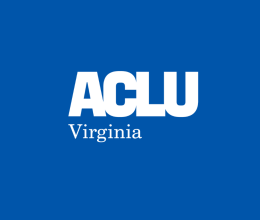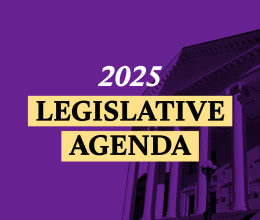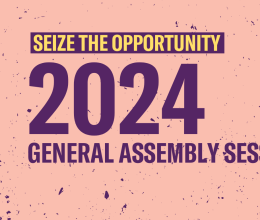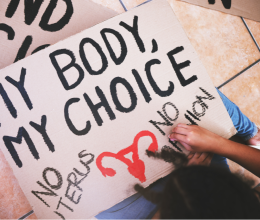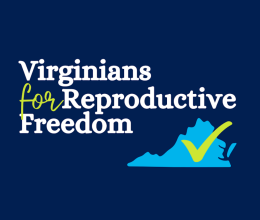
Today, a federal district court ruled on four Virginia laws that have impeded abortion access for years and made it difficult for abortion clinics to stay open in the state. The decision comes after a two-week trial earlier this year in Richmond, Virginia. The case was filed on behalf of Virginia abortion providers including Falls Church Healthcare Center, Whole Woman's Health Alliance, the Virginia League for Planned Parenthood, and Dr. Jane Doe. The Center for Reproductive Rights, Planned Parenthood Federation of America, and O’Melveny and Myers LLP represent the providers along with local counsel, the ACLU of Virginia.
In a win for abortion rights groups, the court struck down:
- The Second Trimester Hospital Requirement: A law that required all second trimester abortions to be performed at a licensed outpatient hospital, despite clear medical consensus that these procedures are just as safe when performed at a clinic or physician’s office. The court recognized that non-surgical second trimester abortions can safely be performed in a clinic setting. All second trimester abortions are non-surgical, as they do not involve incisions.
- Facilities Requirements: Regulations that would have required clinics that provide first trimester abortions to meet the same facility requirements as general and surgical hospitals. For example, clinics would have had to redesign hallway widths and adhere to minimum square footage of procedure rooms, among other requirements unnecessary to the provision of care. If enforced, this law would have forced most clinics in the state to immediately close.
As part of the same decision, the court upheld the following laws that hinder abortion access:
- The Two-Trip Mandatory Delay Law: A law that forces women to undergo an unnecessary ultrasound and listen to state-mandated information designed to shame the patient at least 24 hours before their procedure. This means patients must unnecessarily make at least two trips to a medical facility and delay their procedure by at least 24 hours.
- The Physician-Only Law: The court acknowledged the “persuasive evidence” that Advanced Practice Clinicians can safely provide abortion care, yet this law was upheld, and will continue to restrict abortion access. It bars highly skilled and qualified medical professionals such as nurse practitioners and physician’s assistants from providing safe, early abortion care, despite evidence, medical consensus, and even the judge’s findings that they can do so just as safely as physicians. The impact is especially severe in underserved parts of the Commonwealth.
- The Licensing Scheme*: Abortion providers must meet onerous licensing requirements that have no legitimate medical basis and do not apply to any other health care providers. The licensing scheme singles out any medical facility where five or more first trimester abortions are performed per month and subjects them to regulations that affect virtually every aspect of care.
*The building requirements section of this scheme was struck down, as noted above.
“The reality is that despite this significant move towards access, we at Falls Church Healthcare Center are disappointed by today’s decision,” said Rosemary Codding, Founder and Director of the Falls Church Healthcare Center. “We’re disappointed that our patients did not get their constitutionally-protected right to accessing healthcare without legislative interference, which they are entitled to and they deserve. Their health and their rights are foremost in our minds.”
“Today’s mixed decision is a disappointment for us at Whole Woman’s Health Alliance,” said Amy Hagstrom Miller, President and CEO of Whole Woman’s Health Alliance. “We are glad the court relaxed Virginia’s restrictions on second trimester abortion care and we look forward to providing quality care affordably into the second trimester. We are disappointed, however, that the court did not see clearly how the other restrictions it left in force are not supported by medical evidence and place undue burdens on families in the Commonwealth. Two-trip mandatory delay laws, inaccurate medical information, forced ultrasounds and physician-only laws harm patients and they have a disproportionate effect on people of color, rural communities, young people, and those who struggle financially. These are the Virginians who lost today – and who deserve our advocacy now more than ever. As always, Whole Woman’s Health Alliance will continue our fight to bring access to high quality care to all who need it in the Commonwealth.”
“This decision opens the door to expanding abortion access in Virginia, but it also shows how much work still needs to be done,” said Jenny Ma, Senior Staff Attorney at the Center for Reproductive Rights. “We put forth powerful and overwhelming evidence showing how these laws, individually and together, work to obstruct abortion access, but that was largely ignored by the court. Now, many Virginians will continue to unnecessarily face serious obstacles to abortion access under these burdensome laws under the guide of protecting patient health, which in reality, only work to decimate access to care.”
“Today’s decision includes some real progress in breaking down barriers to safe, legal abortion in Virginia. Importantly, the court recognized that second trimester abortions are safe outside the hospital setting, and that laws limiting them to hospitals are unconstitutional and have seriously harmed Virginians,” said Paulette McElwain, President & CEO, Virginia League for Planned Parenthood.“At the same time, the decision leaves in place several burdensome, medically unnecessary restrictions that will continue to pose hurdles to patients. At Virginia League for Planned Parenthood, we will continue to fight to expand access to the full range of reproductive health care for everyone in Virginia, and to ensure that access doesn’t depend on your income or where you live.”
Between 2009 and 2016, the number of medical facilities providing abortion care declined by more than half — making it progressively more difficult and expensive for people seeking abortions to access care in Virginia. The state has a long history of placing restrictions on abortion access. In addition to the laws challenged in this lawsuit, Virginia limits when public health insurance can cover abortion and requires parental consent for minors seeking abortion.
